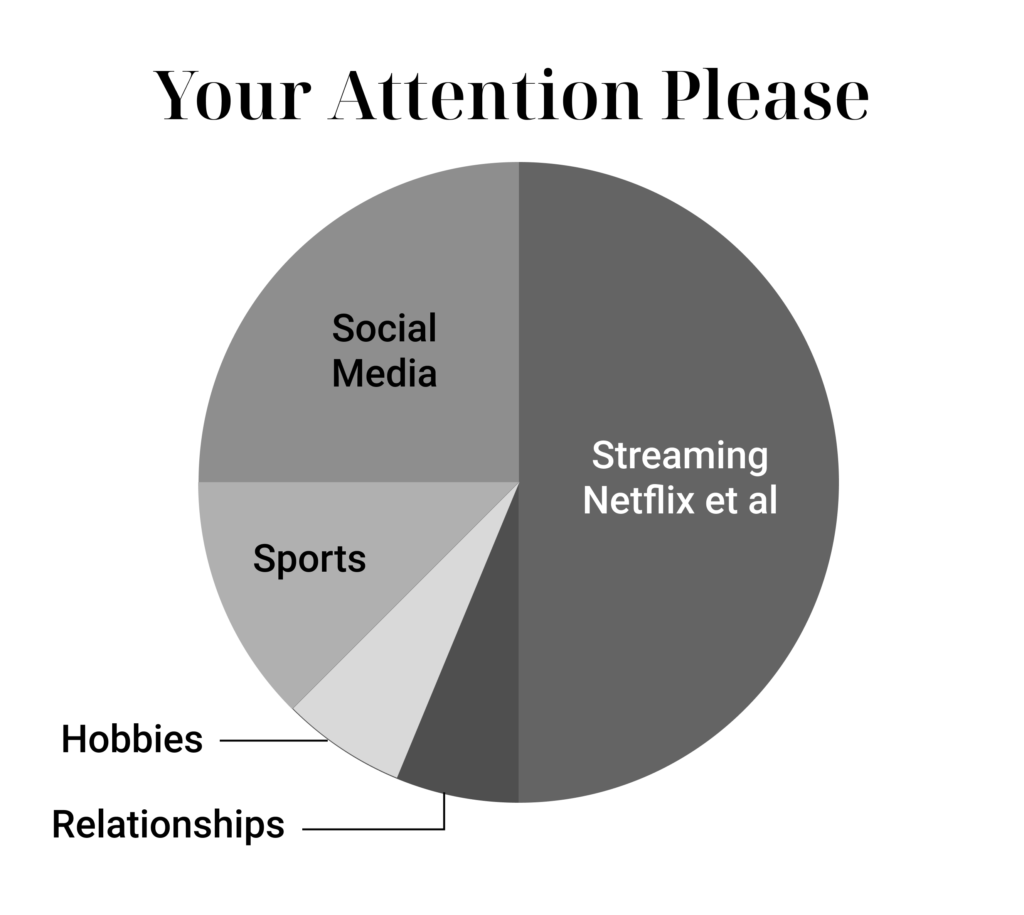The sun had barely risen when my alarm buzzed to life, accompanied by a flood of notifications. My phone screen lit up with a barrage of emails, social media updates, and news alerts. Before my feet even touched the ground, I was already drowning in a sea of digital demands.
As I got ready for work, my smart speaker chimed in with the day’s headlines, each more sensational than the last, vying for my attention. By the time I sat down for breakfast, I had already responded to three work emails, liked several posts on Instagram, and retweeted a controversial opinion piece.
The drive to work was no respite. I listened to my favorite podcast while getting regular traffic updates from Google Maps. At every red light, I felt the irresistible urge to glance at my phone, fearing I might miss out on something important.
At the office, the symphony of digital distractions continued. Slack messages, team meetings on Zoom, and the ever-present lure of the open browser tab. My actual work — the deep, focused tasks I was hired to do — often felt like an afterthought, constantly interrupted by the cacophony of the attention economy.
Lunchtime was a blur. Instead of a peaceful break, I found myself mindlessly scrolling through my social media feeds, comparing my life to the curated highlights of others. The joy of a delicious meal was overshadowed by the need to participate in the noise.
By evening, I was mentally exhausted. As I prepared dinner, the TV blared in the background, a talk show host discussing the latest celebrity scandal. The real conversations, the ones with my family, were punctuated by the familiar pings and dings of devices scattered around the house.
Finally, as I settled into bed, I promised myself some quiet reading time. But the pull of the screen was too strong. Instead of diving into a novel, I found myself scrolling, swiping, and liking, trapped in an endless loop of digital dopamine.
The last thing I saw before drifting off to sleep was the glow of my phone screen, a portal to a world that never sleeps, always demands, and never truly satisfies. Another day in the attention economy had come to an end, leaving me to wonder: in a world constantly clamoring for my focus, what was I truly paying attention to?
Everyone and everything is vying for your attention. From the incessant pings of social media notifications to the allure of the latest Netflix series, the competition is fierce. But why? Why has attention become such a sought-after commodity?
The answer is simple: attention is power. It drives advertising, influences behavior, and shapes our perceptions. It impacts how we feel, what we buy, and the things we think about. But more than that, attention is the very essence of our existence. It’s the lens through which we experience the world, and it determines the narrative of our lives.
Our Most Precious Resource
In today’s digital age, the concept of the “attention economy” has taken center stage. Social media platforms, streaming services, news aggregators, blogs, podcasts, sports, radio, books – they’re all players in this vast arena, each jostling for a slice of your attention pie. The more they can captivate you, the more valuable they become, both in terms of revenue and influence.
But while these platforms profit from our attention, what do we get in return? Momentary entertainment? A fleeting sense of connection? A quick laugh in the dead of the night? Perhaps. But at what cost?
Attention is not just another resource; it’s our most precious one. It’s finite. Every moment you spend scrolling through TikTok or binge-watching a series on Netflix is a moment you can’t get back. It’s a moment that could have been spent creating, learning, connecting, or simply being.
The gravity of this realization is profound. Our attention is, quite literally, our life. We have all come to realize that everyone is vying for our attention, but we never quite understood what is at stake. The things we choose to focus on, and the experiences we prioritize, shape our reality. They determine our memories, our stories, and ultimately, our legacy.
A great analogy is thinking of life as a book, and attention is the pen with which we write our story. Every time we divert our attention, we’re choosing the words, sentences, and chapters of our life. Do we want our narrative to be a monotonous repetition of consumed media and materialistic pursuits? Or do we aspire for a tale rich with experiences, growth, and genuine connections?
In the grand tapestry of existence, life is but a blink. Yet, in our pursuit of validation through likes, shares, and retweets, we often forget the bigger picture. We become ensnared in the superficial, losing sight of what truly matters.
But what if we were to shift our focus? What if, instead of mindlessly surrendering our attention to the loudest shout or the shiniest object, we became intentional about where we directed it?
Imagine a life where attention is spent on nurturing relationships, pursuing passions, and cultivating personal growth. A life where moments are savored, memories are cherished, and experiences are lived fully. The question is, how?
Reclaiming Our Attention
So, how do we break free from the shackles of the attention economy? How do we reclaim our focus and, by extension, our lives? Here are five ways that can help you reclaim your attention.
Be mindful: Begin by cultivating mindfulness. Be present in the moment. Recognize when your attention is being hijacked and make a conscious choice to redirect it. Awareness and acknowledgment are how it begins.
Schedule consumption: Periodically disconnect from the digital world. Allocate specific times for checking social media or emails. Embrace the joy of missing out. It’s unrealistic to completely shut off consumption, but you can be more intentional with it.
Identify your values: Determine what truly matters to you. Is it family? Passion projects? Travel? Allocate your attention accordingly. Find ways to focus your attention on things that positively impact your life, whether that’s through joy or wealth or self-improvement.
Limit multitasking: Contrary to popular belief, multitasking dilutes our attention. Focus on one task at a time and immerse yourself fully. This is also a great way to practice mindfulness, as you have to be aware of those moments when your attention starts to diverge.
Seek depth: Instead of skimming the surface of multiple interests, dive deep into a few. The depth of experience often outweighs breadth. I’ve written about this a lot (as well as in my book), but it is valuable to balance depth and breadth in a strategic way.
“The quality of your life is determined by the focus of your attention.”
Cheri Huber
While the world may be competing for our attention, it’s up to us to decide where it goes. Let’s not squander it on the transient and trivial. Instead, let’s invest it in what truly matters, crafting a life story that resonates with purpose, passion, and meaning.
Remember, attention is more than just a resource; it’s the essence of life itself. How we spend it doesn’t just shape our days; it defines our very existence. Choose wisely.

